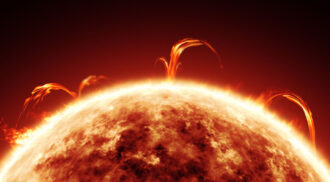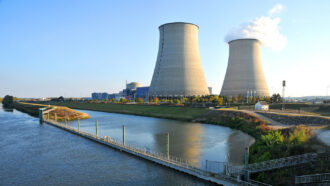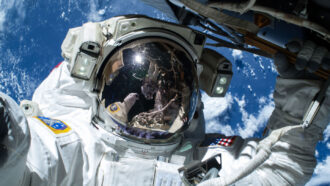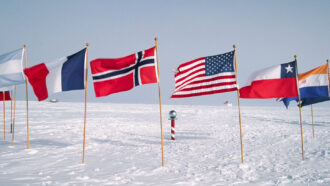Scientists Say
A weekly word defined, in a sentence and in context. Click here to find the alphabetized list.
-
 Physics
PhysicsScientists Say: Fusion
Nuclear fusion is the physics that powers the sun and could someday provide abundant clean energy on Earth.
-
 Physics
PhysicsScientists Say: Fission
Nuclear fission is the process of splitting atoms apart to release huge amounts of energy.
-
 Computing
ComputingScientists Say: Artificial intelligence
Artificial intelligence is technology smart enough to do tasks that would normally require human brainpower.
-
 Health & Medicine
Health & MedicineScientists Say: Infection
Infections range from mild illnesses, such as the common cold, to deadly diseases, such as rabies.
-

-
 Chemistry
ChemistryScientists Say: Fluorescence
This property causes materials — including some animals’ skin, fur or feathers — to glow under light.
-
 Brain
BrainScientists Say: Glymphatic System
The glymphatic system bathes the brain in cleansing fluids during sleep and clears away harmful cellular waste.
-
 Math
MathScientists Say: Mean, median and mode
Mean, median and mode are all different ways to describe the middle value in a dataset.
-

-
 Physics
PhysicsScientists Say: Neutron
Neutrons are one of the main building blocks of atoms and have no electric charge.
-
 Earth
EarthScientists Say: Pole
A pole is either of two opposite ends of a molecule, magnet, battery, planet or other object.
-
 Plants
PlantsScientists Say: Fruit
Some foods usually called vegetables — such as tomatoes, cucumbers and peppers — are actually fruits.